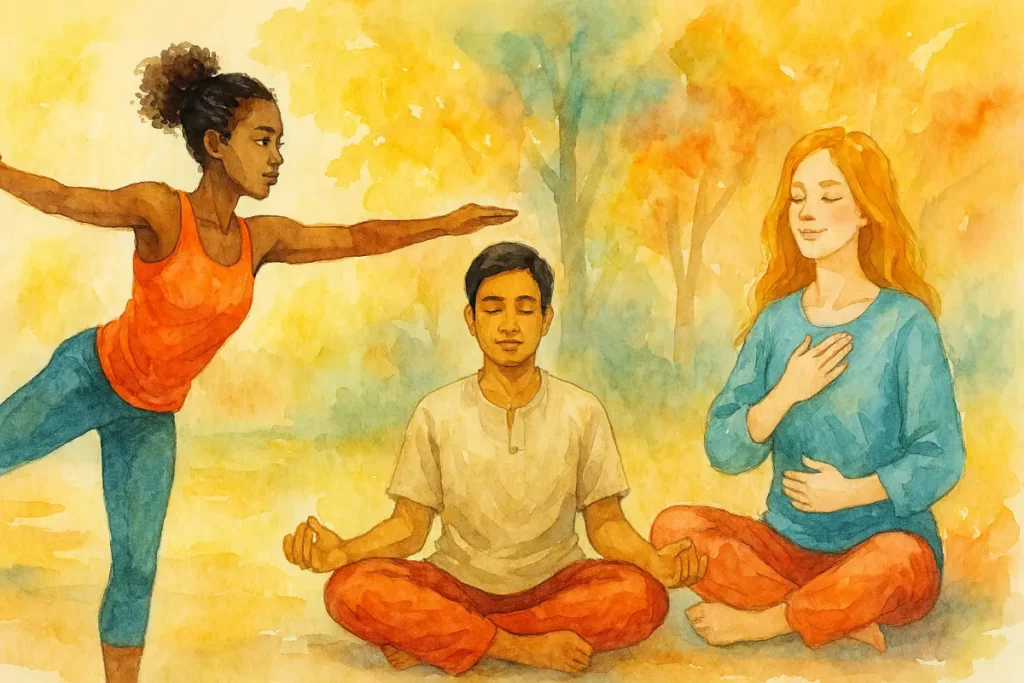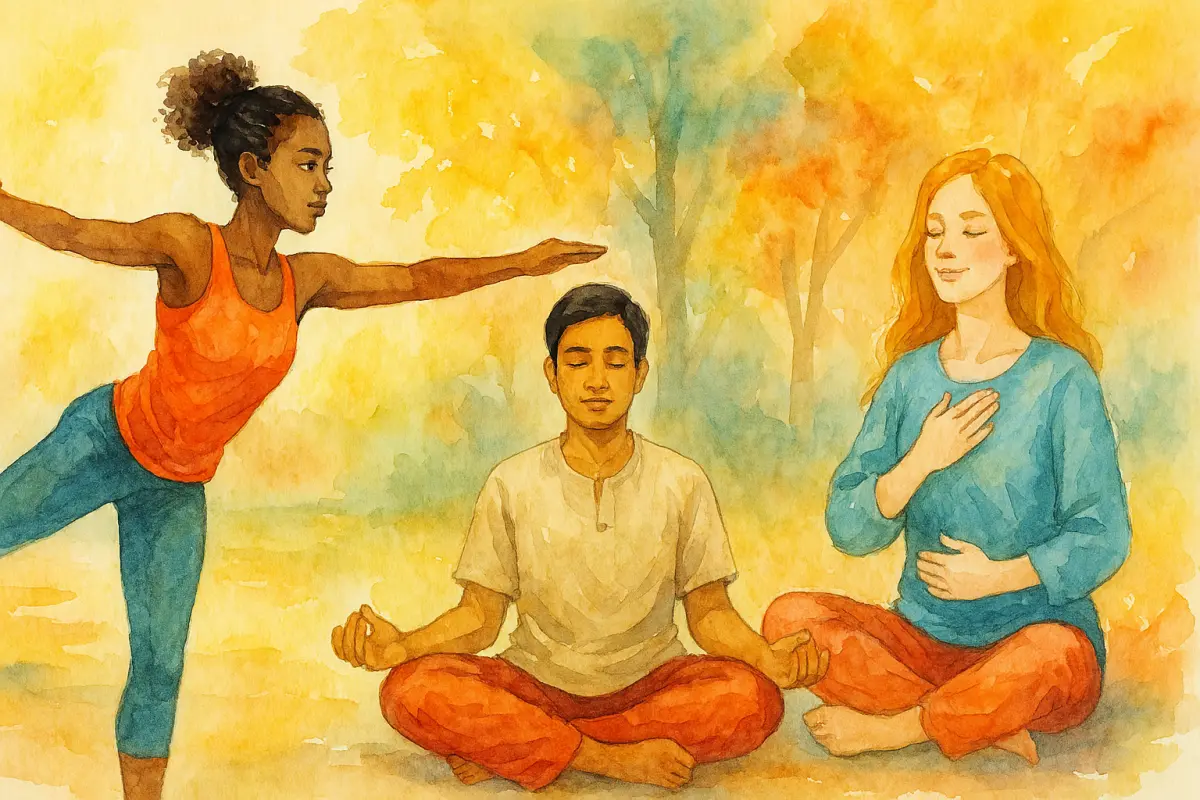Mastering Stress: Techniques to Bring Peace and Balance
Stress is an inevitable part of life, but how we manage it can make all the difference. Chronic stress takes a toll on both mental and physical health, affecting productivity, mood, and overall well-being. In this guide, we’ll explore the most effective stress-relief techniques to help you stay calm, focused, and in control.

Practical Stress-Relief Techniques for Everyday Life
1. Practice Deep Breathing Exercises
Controlled breathing, like the 4-7-8 method, slows the heart rate and promotes relaxation. Inhale for 4 seconds, hold for 7, and exhale for 8.
2. Engage in Regular Physical Activity
Exercise releases endorphins, natural mood lifters that reduce stress. Whether it’s yoga, jogging, or dancing, movement is key to mental clarity.
3. Try Mindfulness and Meditation
Taking a few minutes to focus on the present moment through meditation or mindful breathing can significantly lower stress levels.
4. Prioritize Quality Sleep
Lack of rest amplifies stress. Establish a consistent sleep routine, avoid screens before bed, and create a relaxing nighttime environment.
5. Connect with Loved Ones
Social support is crucial. Talking to a friend, family member, or therapist can help process stress and provide emotional relief.
6. Reduce Caffeine and Sugar Intake
Excess caffeine and sugar cause energy crashes and heighten anxiety. Opt for herbal teas, water, and whole foods to maintain balance.
7. Engage in a Hobby
Creative activities like painting, writing, or playing an instrument help divert attention from stress and foster relaxation.
8. Get Outdoors and Embrace Nature
Spending time in nature reduces cortisol levels. A simple walk in the park or gardening can have powerful stress-relieving effects.
9. Keep a Gratitude Journal
Focusing on positive aspects of life shifts attention away from stressors. Writing down three things you’re grateful for daily fosters a positive mindset.
10. Listen to Relaxing Music
Music has a profound effect on mood. Classical, lo-fi beats, or nature sounds can help calm the nervous system and ease stress.
11. Try Aromatherapy
Essential oils like lavender, chamomile, and peppermint have soothing properties that promote relaxation and stress relief.
12. Laugh More
Laughter releases tension and triggers the release of endorphins. Watching a comedy show or spending time with fun-loving people can uplift your mood.
13. Use Progressive Muscle Relaxation
Tense and then release different muscle groups in your body to relieve physical stress and increase overall relaxation.
14. Declutter Your Space
A cluttered environment can create mental overwhelm. Organizing your space can bring a sense of control and calm.
15. Set Healthy Boundaries
Learning to say no and protecting your time and energy can prevent stress from overcommitment and burnout.
Inspirational Quotes on Stress Relief
“Tension is who you think you should be. Relaxation is who you are.” – Chinese Proverb
“Almost everything will work again if you unplug it for a few minutes, including you.” – Anne Lamott
“Do not anticipate trouble or worry about what may never happen. Keep in the sunlight.” – Benjamin Franklin
“The greatest weapon against stress is our ability to choose one thought over another.” – William James
“It’s not stress that kills us, it is our reaction to it.” – Hans Selye
“You cannot always control what goes on outside. But you can always control what goes on inside.” – Wayne Dyer
“Your calm mind is the ultimate weapon against your challenges. So relax.” – Bryant McGill
“Take rest; a field that has rested gives a bountiful crop.” – Ovid
“Anxiety is nothing but repeatedly re-experiencing failure in advance.” – Seth Godin
“The time to relax is when you don’t have time for it.” – Sydney J. Harris
Beyond Stress: Building a Life of Resilience and Joy
Managing stress isn’t about eliminating it entirely but about developing healthy coping mechanisms. By incorporating these techniques into your daily routine, you can cultivate resilience, improve your mood, and enjoy a more balanced life.
Start by trying just one or two of these methods today, and gradually integrate more over time. The key is consistency—small, mindful steps lead to lasting results.
Further Reading & Resources
- Harvard Health – The Benefits of Mindfulness Meditation – Learn how mindfulness can reduce stress and improve mental well-being.
- American Heart Association – Stress Management – Strategies for reducing stress and protecting heart health.
- National Institute of Mental Health – Coping with Stress – Evidence-based techniques for managing stress.

